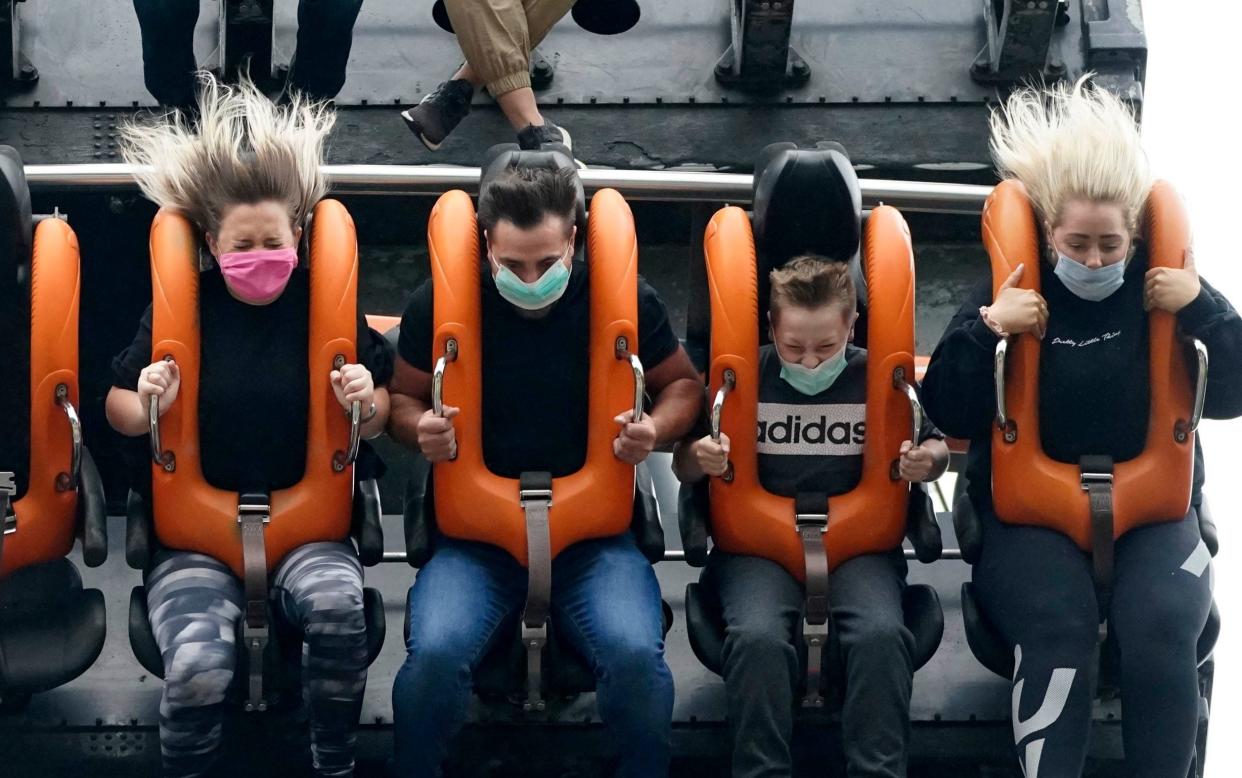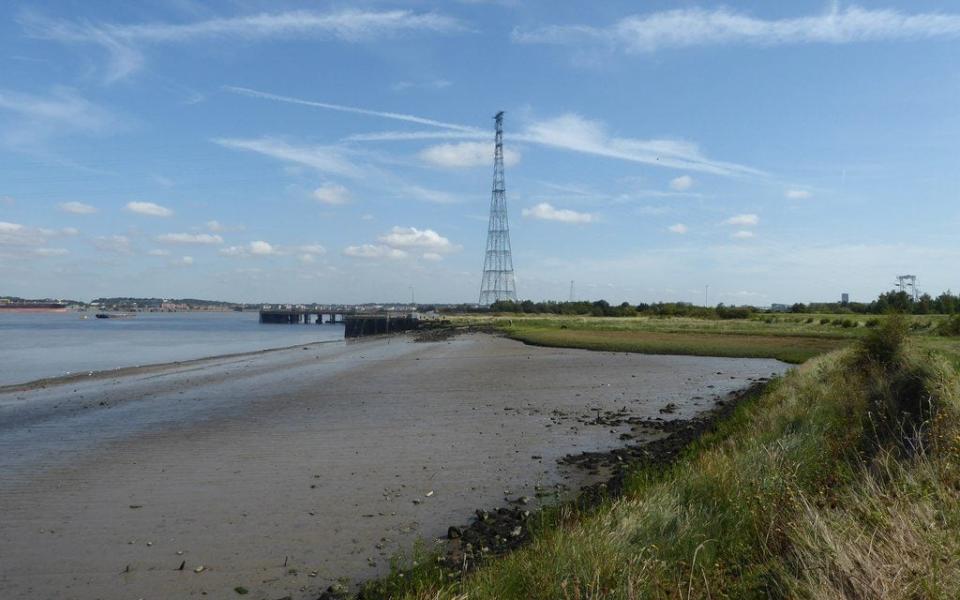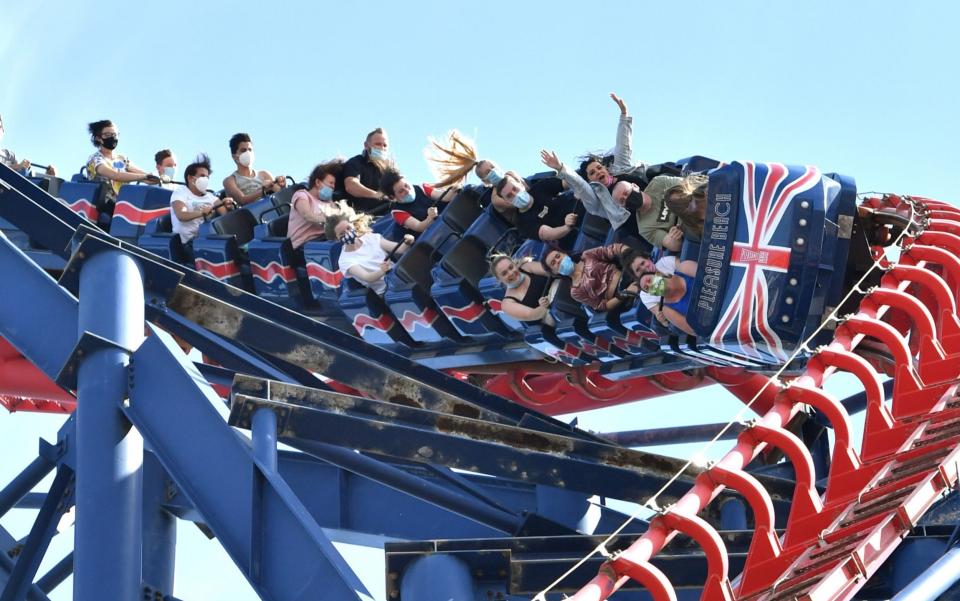Can Britain’s theme parks withstand the Covid rollercoaster?

If the whole world has been turned head-over-heels by Covid-19, the rollercoaster ride is proving especially challenging for theme parks. Even industry colossus Disney has struggled to adapt to a new normal of social distancing, compulsory face-masks for all visitors over the age of two, and daily “deep cleans” of its facilities.
Disney reopened its Florida parks in July – the California operation remains shuttered as part of the ongoing state-wide shutdown – but has reported “unexpectedly low attendance” as an anxious public stays away. In response, Disney has done the unthinkable and curtailed the venues’ opening hours by up to two hours.
A bleak scenario is similarly unfolding at British parks, which employ an estimated 250,000 people (rising to a million during the summer peak). Alton Towers, one of the country’s most popular outdoor destinations, reopened on July 4 at 25 per cent capacity and with a requirement that masks be worn on rides where screaming is likely. The park, which reported 2.13 million visitors in 2019, was also forced to delay until September its new World of David Walliams and the headline Gangsta Granny ride.
Still, there was a glimmer of hope for the industry this week with the announcement of a new Harry Potter-themed park for Japan. Studio Tour Tokyo – The Making of Harry Potter, a companion to the existing Harry Potter studio tour in Leavesden, Herts, is to open in 2023, by which point, it is assumed, the world will have returned to a semblance of post-Covid normality.
But just how “normal” will life really be by then? And if it isn’t, what will theme parks look like? “Bigger and emptier” is potentially the answer. Catering to pre-Covid 19 visitor numbers while abiding by current social-distancing standards would require parks to almost double in size, according to The Thinkwell Group, a Californian design firm.A Disney-scale “mega” park would have to increase in scope from around 110 to 220 acres, they concluded in a recent “white paper”.
The pandemic poses an obvious complication for the London Resort, an 872 acre project proposed for Swanscombe in Kent. The £3.2 billion development will feature Europe’s largest indoor water-park, theatres, live music venues, attractions, cinemas, restaurants, event space and hotels.
It’s the brainchild of Pierre-Yves Gerbeau, a French businessman, one-time ice hockey international and a former vice-president at Disneyland Paris (then Euro Disney). Gerbeau was appointed chief executive of the company operating the Millennium Dome in 2000 – he was brought in after criticism of the opening night fiasco in which VIPs were left queuing in the cold – and nicknamed the “Gerbil” in the press. The 54 year-old contracted Covid-19 in March, but has since recovered.
The London Resort was unveiled in October 2012 as the London Paramount Entertainment Resort, in partnership with Paramount Pictures. Paramount withdrew in 2017 but has agreed to license some of its properties for rides. The BBC and ITV have also signed up with the resort and it is expected there will be attractions themed around Doctor Who, Top Gear and Thunderbirds. A process of public consultation is due to begin shortly.
There has been local opposition to the plan, led by environmentalists who warn of the threat to Swanscombe Marshes and the many rare species living there. Nonetheless, construction is due to begin by late 2021.

“During lockdown,” says Jamie Robins, of nature conservation charity Buglife, “the country’s eyes were opened to the nature on their doorstep and their local green spaces, so I’d hope that one potential impact of the pandemic on the development is the realisation that jewels such as Swanscombe Marshes are more important than another theme park.
“The developers seem confident that their plans are on track despite the pandemic, from what I have heard. But Buglife’s campaign to save Swanscombe Marshes is also on track.”
One positive for the theme-park sector in the UK is that Covid-19 hasn’t severely diminished the public’s enthusiasm. A US survey by Morning Consult found that 78 per cent of the public there felt it was “too soon” to return to parks in the summer of 2020. But such misgivings are not necessarily shared here, believes Nick Farmer, chief executive of theme-park consultants Farmer Attraction Development.
“Places like Blackpool Pleasure Beach are doing really, really well, with more visitors than they expected,” he says. “The demand is quite high. It is difficult to satisfy demand when you are reducing visitor numbers. But there is a demand. We seem a bit more relaxed about it than in the States.”

Still, for the time being, the challenges are substantial. “Unlike smaller or indoor attractions,” says Keith Thomas, chief executive of leisure business consultancy, The Petersham Group, “which can sell timed admission slots and manage demand to suit capacity that way, a visit to a park is an all-day event.
“And if they can only accommodate 30 per cent of the numbers they would normally expect, they are going to be under the cosh financially. It costs a lot to re-open a theme park and there’s a lot of fixed costs once it’s open, whether it’s 100 per cent utilised or not.
“However, worse still is the possibility that it may then have to close again due to a local spike, particularly if that were to originate at the park itself. So all social distancing and sanitation measures must apply for the moment, at least until there’s a viable vaccine that can protect guests and restore public confidence.”
The long-term health of the sector ultimately depends on the pandemic being brought under control, Farmer agrees.
“We’re all clutching for this vaccine,” he says. “Once the vaccine is out there and working, I think people will forget and return to normal habits. It’s a slightly black comment, but when there’s an accident at a park – which is very rare – but when there is one, people forget about it very quickly and are happy to go back on the rides.
“It’s like falling off a horse. You get back on and you forget.”
